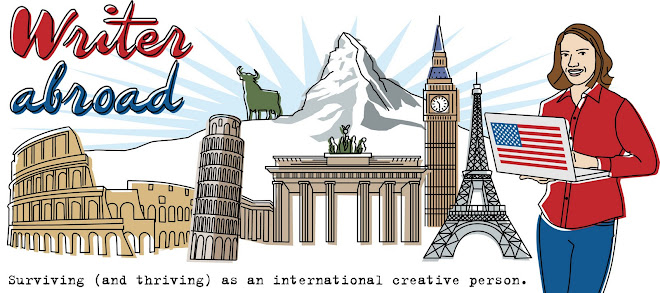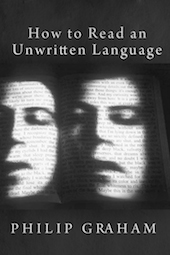Writer Abroad couldn't help but relate to the following post, written by Jill Boyles.
I don’t know what
to do with myself. After having lived in Poland for almost two years, my
husband and I returned to the USA. Mind you, I’ve lived abroad before, Turkey
and China, and flew home to visit family and friends with the knowledge that I
was going back. This time, I don’t know if I’ll ever go overseas again and
writing that halts my breath. Breathe . .
Two days ago, I
opened a memo application on my computer, and a to-do list popped up, which I
had written while living in Warsaw. A reminder of who I was then: an expat. A reminder of who I am now: an ex-expat. I was formerly absent from my
country but not anymore. I’m present to drive to the store, to fold the laundry,
to take the trash to the curb. During my absence, I walked across Plac Defilad
with snow falling on park benches and lampposts, illuminating a dark, winter
evening made warmer from the steamy kebab stand, the meat’s pungent scent
pricking my nose.
I have a travel blog
I started last year but don’t know what to do with it. My husband and friends
encourage me to continue. Travels in the US, they say. I give this much
thought, but writing about the States feels disingenuous, like I’m pulling the
wool over my readers’ eyes. In truth, I would be disingenuous to myself. I’m no
longer that person writing about this; I’m now this person writing about that. Last
month, I deleted a post and submitted it for publication.
After I had
arrived home from China, my dad asked if I wanted to go to a baseball game. I
said that I’d rather watch a Chinese man pee in a bush – a common sight in the
part of China where I had lived. His face cracked like porcelain. My intention
was not to hurt him, but the mention of going to yet another baseball game,
well . . . been there, done that. Fresh from China, I craved exciting
experiences. Something I wanted my dad to understand. Instead, I sounded like a
petulant child. I can never take back that moment.
Traveling
familial territory is treacherous. The terrain dips in ways you never expect.
I’m about to move
to a new state at the opposite end of the country. I’ll have trouble adjusting,
and this frightens me. Different accent, different behavior, different climate.
I search for the fearless, adventurous woman who lived and worked in other
countries, who spoke with vowel harmony, tones and seven cases. It’s different
here, not fitting in with your own people. Not like over there, where not
fitting in is a faded, oversized sweater worn on weekends.
The speaker in
Elizabeth Bishop’s poem “One Art” tells us “the art of losing isn’t hard to
master.” A laundry list of lost items like keys, a mother’s watch, houses, and
continents are met with the assurance that these losses aren’t disasters, not
even losing a loved one.
Unlike Bishop, I haven’t lost a beloved although in some ways it feels like it. What
I am doing is practicing the art of losing. When I want to say nie, I say no. When I want to catch the
server’s attention to add ice to my drink, I put my hand down. When I correspond with overseas friends, I pause and look about me: I am here, in this room, in this country.
Jill
Boyles is a writer from Minnesota, USA. Her work has appeared in The Minnesota
Women’s Press and Focus on Dalian,
among other publications. Her blog is finding-place.com. The deleted blog post mentioned in this
blog post will be in the November issue of Calliope
Magazine.






